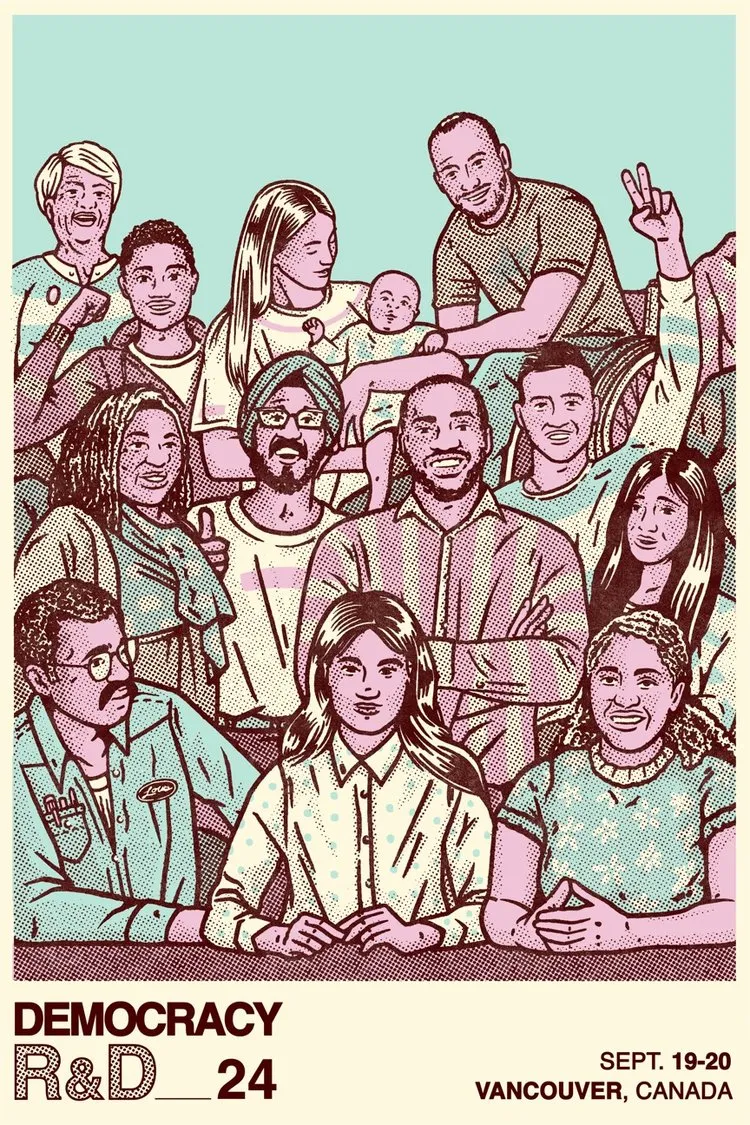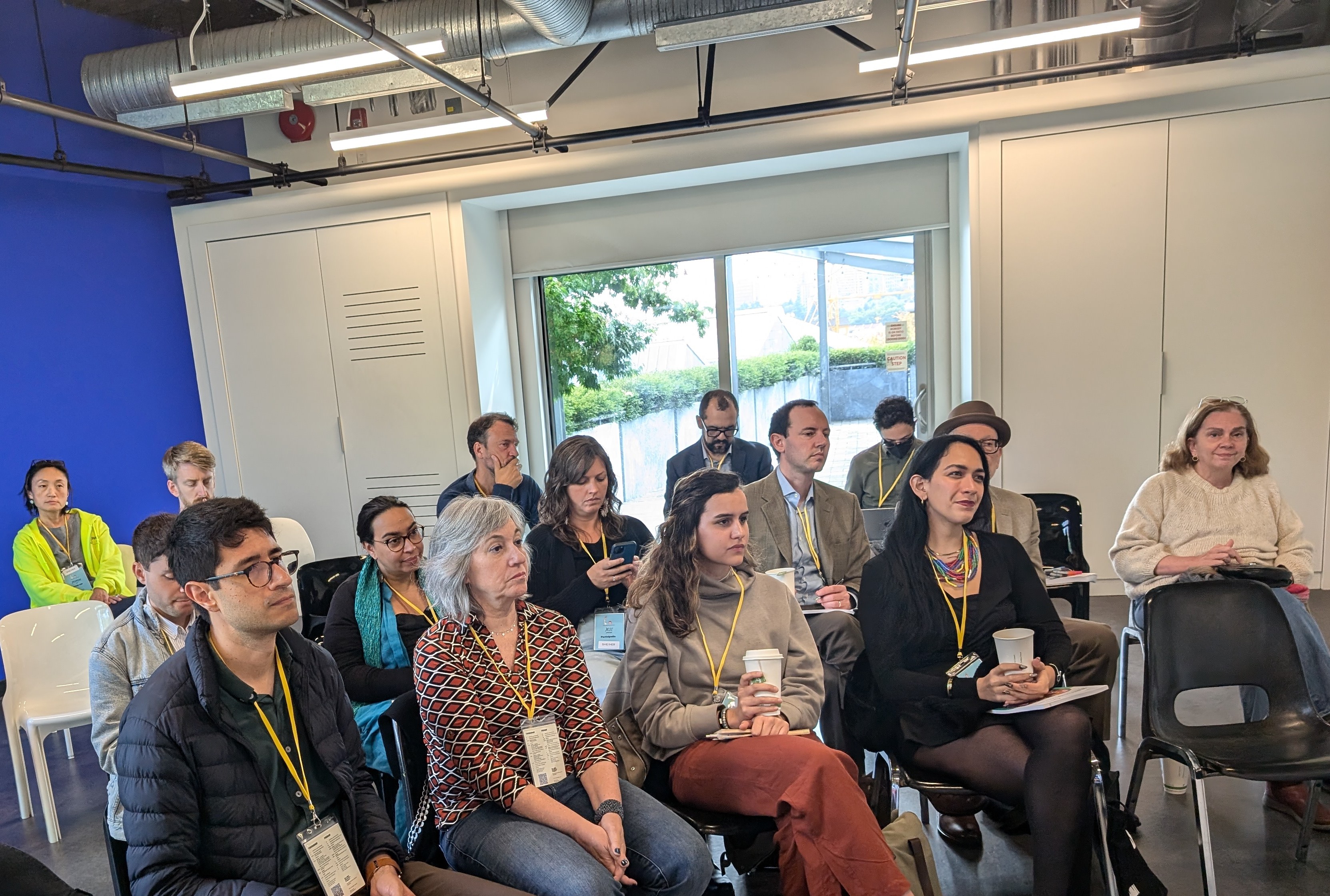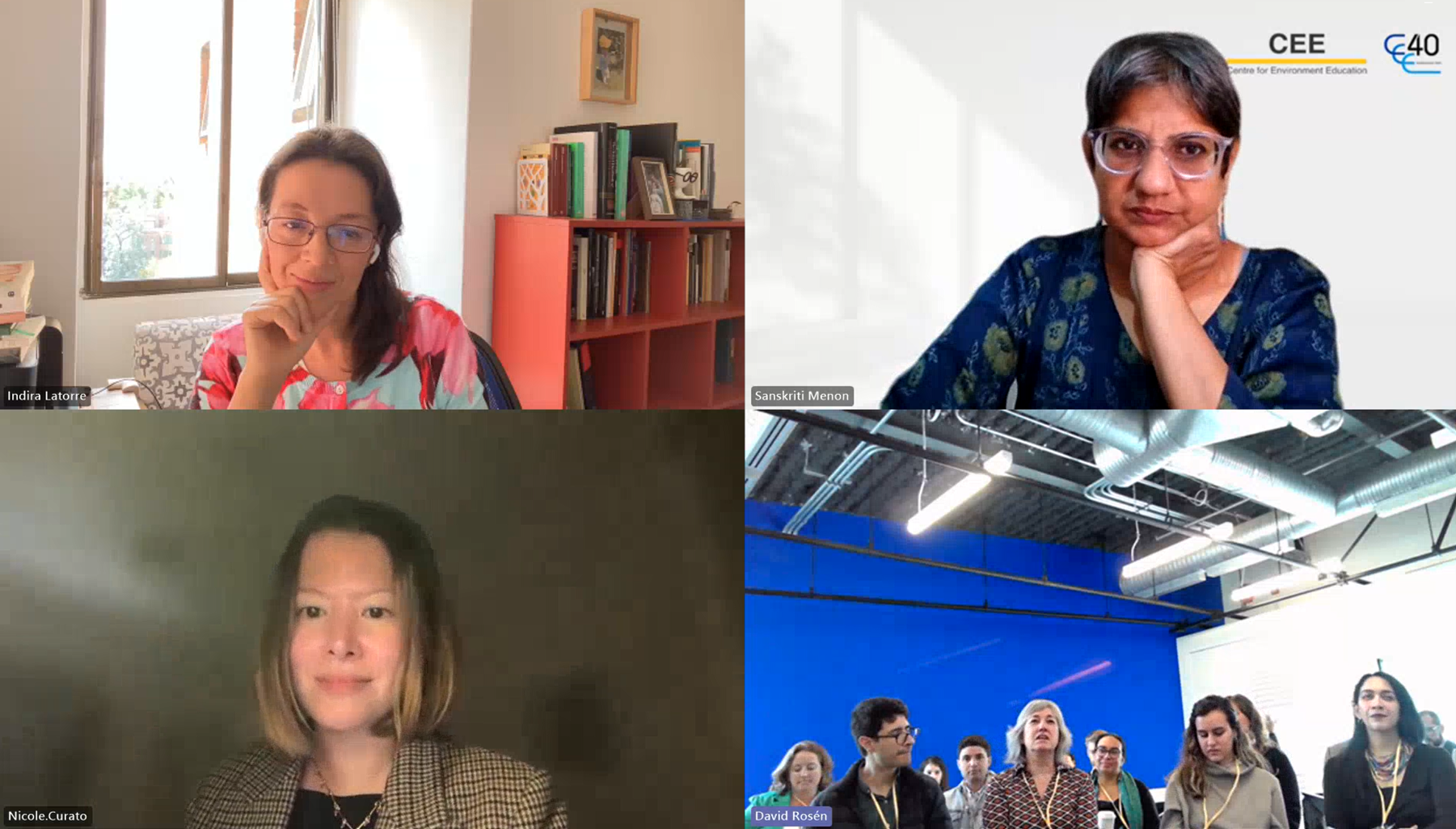
International IDEA, Delibera Brasil and the Centre for Deliberative Democracy and Global Governance at the University of Canberra invited practitioners, experts and peer organizations from the Global South to a conversation on “Climate deliberation in the Global South – its potential, challenges and future directions” at the Democracy R&D Annual Conference held in Vancouver on 19-20 September 2024. The DRD network is the largest global network dedicated to deliberative democracy and democratic innovation.
Nicole Curato from the University of Canberra introduced the findings of International IDEA’s publication on Deliberative Democracy and Climate Change: Exploring the Potential of Climate Assemblies in the Global South (written by Nicole Curato, Graham Smith and Rebecca Willis, funded by the Agence Française de Développement).
Silvia Cervellini from Delibera Brasil opened the exchange by sharing lessons from the recent climate assemblies held in Brazil and across Latin America as part of the (Re)surgentes programme. Participants included organisations such as the Centre for Environmental Education India, Rosario University in Colombia, Extituto Politica Abierta, SFU Morris J. Wosk Centre for Dialogue, Democracy R&D, Participedia, Open Government Partnership, People Powered, and Democracy X.
The discussion focused on the experience of using citizen assemblies and other deliberative democratic innovations on climate and environmental issues in the Global South. It asked what insights the emerging deliberative experience from the Global South brings to the global discussions on the role of deliberative spaces in strengthening citizen-led climate action. The conversation zoomed in on questions around setting the remits of climate assemblies, how to make sortition fit the local context, and the challenges faced to institutionalize citizen deliberation, identifying common themes, experiences and lessons learned such as:
Creating the remit
- There is no one-size-fits-all model for establishing the remit for climate assemblies. The process of setting the remit often involves collaborative efforts with civil society organizations, civil servants and decision-makers to co-create a meaningful remit for citizens and the commissioning institution.
- These methods can improve the chances for the citizen assembly to influence public policy and help prevent friction or resistance from civil society organisations.
- In discussions on the remit, try to aim for a specific impact on public policy and let that consideration define the scope of the remit.
- Be responsive to the citizens participating in the process and find ways to make the remit matter to topics that make a difference in their lives.
- For multiple rounds of citizen assemblies, consider adding a learning phase between citizen assemblies to improve the design and process for each round, as used by the Bogotá Itinerant Citizens' Assembly.
- An open call for cities interested in organizing a climate assembly can help identify proponents for citizen assemblies focused on relevant remits.
Localizing sortition
- While sortition presents opportunities to overcome social polarization, there is a need to consider how traditional minorities are reflected in the deliberative practices using sortition and rotation. This may require flexibility about the role of sortition and considerations about drawing on traditional or indigenous deliberation methods.
- Specific efforts can become necessary to include the voices of minorities who are also often the most climate vulnerable. These can include organizing separate climate assemblies for these groups, feeding into broader policy discussions.
- In Latin America, traditional communities have played a key role in co-designing the climate assemblies.
Challenges and opportunities for climate deliberation
- One challenge to climate deliberation in the Global South is the question of how to best integrate citizen assemblies into broader ecosystems of citizen participation and complement existing participatory institutions.
- There are several options for community-level climate action using citizen deliberation. These could include experiential learning, participatory appraisals or community-based monitoring processes.
- There is a potential to integrate participatory and deliberative practices in existing legal frameworks and spaces for deliberation, such as annual planning processes, regular town hall meetings, and constitutionally recognized spaces for deliberation (such as village assemblies in India).
- In many contexts, there are specific legal frameworks around participation mechanisms for Indigenous communities, in which deliberative practices on climate change need to be situated and resonate.
- Regional-level agreements on environmental democracy, such as the Escazú Agreement for Latin America and the Caribbean, can play important roles in establishing transparency, access to information and public participation in climate governance.
- There is a need to explore multi-level deliberation practices and mechanisms, connecting local, regional and national climate policy and action.
- Even with political and social leaders supporting citizen deliberation, the timing of elections at local and national levels can present challenges to ongoing climate assemblies and the social and political receptiveness and willingness to engage in citizen deliberation.
- Finally, there is a need to better track and improve the evidence base and data about the policy impact of climate assemblies. Existing regional networks and communities of practices on climate deliberation are important nodes for this work.
Learn more about International IDEA’s work on climate change and democracy and download our most recent publication Deliberative Democracy and Climate Change: Exploring the Potential of Climate Assemblies in the Global South.






